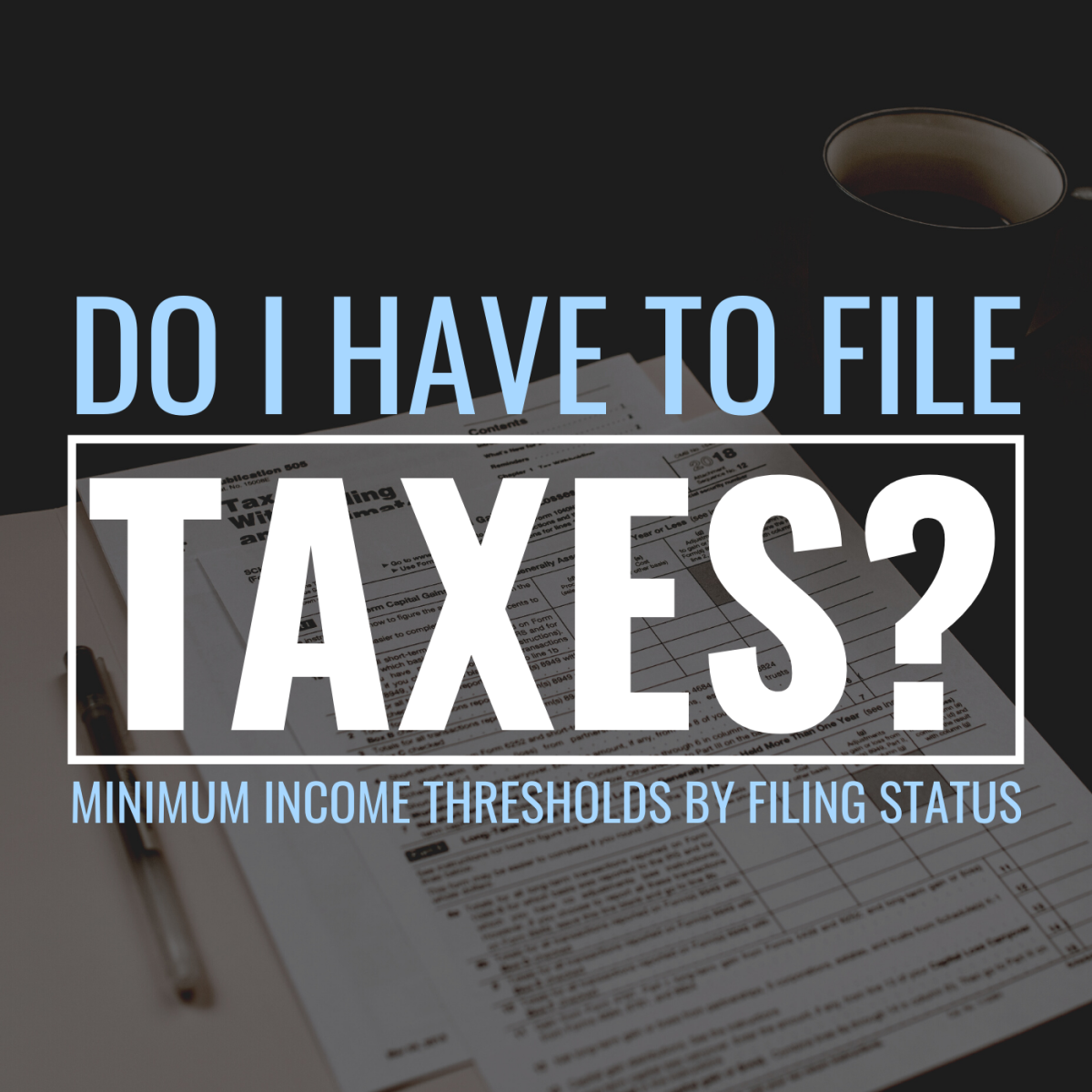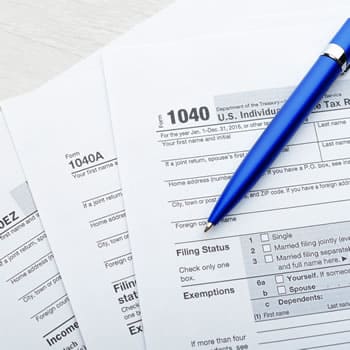Do I Have to File Taxes If I Don’t Make Enough Money?

If your income is less than the standard deduction, you generally don’t need to file taxes. However, it is legal to file a tax return even if your income is below the IRS minimum requirement.
When it comes to filing taxes, the amount of income you make plays a crucial role. If your income falls below the standard deduction set by the IRS, you may not be required to file taxes. It is essential to understand the guidelines set by the IRS to determine whether you need to file taxes based on your income level.
Filing your taxes accurately and in compliance with the regulations is crucial to avoid penalties and ensure financial stability.
Importance Of Filing Taxes
Filing taxes, regardless of income, is crucial for various reasons, including regulatory compliance, potential refunds, and avoiding penalties.
Avoiding Penalties
It is essential to file taxes even if you don’t make enough money to avoid potential penalties and legal implications from the IRS.
Eligibility For Tax Refunds
Filing taxes, even with low income, may qualify you for various tax credits or refunds, making it beneficial to file a return.

Credit: www.thestreet.com
Minimum Income Requirements
Filing taxes can be a daunting task, especially when you’re unsure if your income qualifies you to file. Understanding the minimum income requirements is crucial to determine whether or not you need to file taxes.
more info: How Do You Know If K-1 Income is Passive Or Nonpassive?: Unveil the Mystery!
Thresholds For Filing
When it comes to filing taxes, individuals need to meet specific income thresholds to determine if they are required to file. The minimum income requirements vary based on factors such as filing status and age.
Exemptions And Deductions
Individuals may be eligible for exemptions and deductions that can lower their taxable income, potentially affecting whether they need to file taxes. These deductions can include student loan interest, retirement contributions, and more.
If your income is less than your standard deduction, you generally don’t need to file a return. This is especially true if you don’t have other types of income that require filing, like self-employment income.
| Minimum Income Thresholds | Filing Status |
|---|---|
| Single | $12,550 |
| Married Filing Jointly | $25,100 |
| Head of Household | $18,800 |
- If you qualify for certain tax credits but owe no tax, you may still need to file a return to claim those credits.
- Even if your income falls below the IRS minimum requirement, filing a tax return can be beneficial if you are eligible for tax credits or refunds.
Remember, it’s essential to stay informed about the minimum income requirements and consult with a tax professional to ensure compliance with tax laws.
Non-taxable Income
Types Of Income Not Subject To Taxation
Income that is not subject to taxation includes:
- Gifts and inheritances.
- Child support payments.
- Compensation for physical injury.
Government Assistance Programs
Government assistance programs that are typically non-taxable include:
- Supplemental Security Income (SSI).
- Temporary Assistance for Needy Families (TANF).
- Medicaid benefits.
Tax Responsibilities
If you don’t make enough money, you may not be required to file taxes. However, it depends on factors such as your filing status and whether you had earned or unearned income. It’s important to know the specific rules for your situation to determine if filing is necessary.
Reporting Requirements
As an individual, your tax responsibilities depend on a variety of factors, including your income, filing status, and age. Even if your income is below the IRS threshold for filing, there may still be specific circumstances that require you to file a return.
Individuals must report their income if it exceeds the minimum income threshold based on their filing status, which can change from year to year. You must consider all sources of income, such as wages, interest, dividends, and capital gains, when determining if you need to file a return.
If you have any self-employment income or owe taxes on tips, you may need to file a return, regardless of your total income. Additionally, individuals who are claimed as a dependent on someone else’s tax return may also have to file under certain circumstances.
Options For Filing
Even if you are not required to file a tax return, it might be beneficial to do so. Filing a return could lead to a refund if you had taxes withheld from your paycheck, or if you qualify for refundable tax credits, such as the Earned Income Tax Credit.
If you decide to file a return, there are various options available, including using tax preparation software, working with a tax professional, or utilizing free file programs offered by the IRS. These resources can assist you in the process of filing and ensure that you comply with any reporting requirements specific to your situation.
Tax Benefits For Low-income Individuals
When it comes to taxes, many people wonder if they have to file a return if they don’t make enough money. The good news is that there are tax benefits available for low-income individuals that can help alleviate the burden of filing taxes. In this blog post, we will explore two key tax benefits for low-income individuals: the Earned Income Tax Credit and other tax credits that may be available.
Earned Income Tax Credit
The Earned Income Tax Credit (EITC) is a refundable tax credit for low-income working individuals and families. This credit is specifically designed to help individuals and families with low to moderate incomes, providing them with extra financial support. The amount of the credit is based on various factors, including income, marital status, and the number of qualifying children.
By filing a tax return and claiming the EITC, eligible individuals can receive a significant refund that may exceed the amount of taxes they paid throughout the year. This can be a valuable source of income for low-income individuals and families, helping them meet their financial needs and improve their overall financial situation.
Other Tax Credits
In addition to the Earned Income Tax Credit, there are other tax credits available for low-income individuals that can further reduce their tax liability or provide them with a refund. Some of the commonly claimed tax credits include:
- The Child Tax Credit, which provides a credit for each qualifying child under the age of 17
- The Child and Dependent Care Credit, which helps offset the cost of childcare for working parents
- The Retirement Savings Contributions Credit, also known as the Saver’s Credit, which encourages low-income individuals to save for retirement
- The Education Credits, such as the American Opportunity Credit and the Lifetime Learning Credit, which can help offset the cost of higher education expenses
These tax credits can significantly reduce the tax burden for low-income individuals and families, providing them with additional financial support. It’s important to note that each credit has its own eligibility requirements and limitations, so it’s essential to review the specific guidelines and consult with a tax professional to determine which credits apply to your situation.
Voluntary Filing For Below-threshold Incomes
Voluntary filing for below-threshold incomes allows individuals who don’t make enough money to have the option to file taxes if they qualify for certain tax credits, even if their income falls below the IRS minimum requirement to file. It’s a legal choice that can provide potential benefits.
Advantages Of Filing
If you have a below-threshold income, voluntary filing for taxes can still have several advantages.
- Filing can help you establish a tax record with the IRS, which can be beneficial for future financial planning.
- By voluntarily filing, you may be eligible for certain tax credits or deductions that could increase your tax refund or reduce the amount you owe.
- Even if you don’t owe any taxes, filing can help you qualify for certain government benefits or financial assistance programs that rely on tax return information.
Future Financial Planning
One significant advantage of voluntary filing for below-threshold incomes is the opportunity for future financial planning.
By establishing a tax record with the IRS, you can build a solid foundation for your financial life. This record will serve as proof of income, which is often necessary for various financial transactions like applying for loans, mortgages, or credit cards.
If you have aspirations of starting your own business or becoming self-employed in the future, filing taxes voluntarily can demonstrate your financial responsibility and commitment to compliance. This can positively influence lenders or potential investors, increasing your chances of securing the necessary funding to pursue your dreams.
Moreover, voluntarily filing taxes ensures that you meet all your obligations as a responsible citizen. It reflects your willingness to contribute to society and play an active role in supporting public services and infrastructure.
Tax Forms And Documents
When it comes to filing taxes, many individuals wonder whether they are required to file tax forms if their income is below a certain threshold. Understanding the various tax forms and documents is essential for accurately assessing your tax situation. Here, we’ll take a closer look at commonly used tax forms and share some helpful record-keeping tips to ensure that you stay organized throughout the tax-filing process.
Commonly Used Forms
When it comes to filing taxes, it’s crucial to familiarize yourself with the commonly used tax forms. The Form 1040 is one of the most widely used forms for individual tax returns. It allows taxpayers to report their annual income and determine their tax liability.
Record-keeping Tips
Proper record-keeping is essential for accurately filing your taxes. Here are some record-keeping tips to help you stay organized:
- Keep all income-related documents, such as Form 1099 and Form W-2, in a secure and easily accessible location.
- Maintain detailed records of deductible expenses, including receipts and invoices.
- Utilize financial software or apps to track income, expenses, and receipts digitally.

Credit: www.e-file.com
Irs Guidelines For Non-filers
If you do not file taxes when required, you may face penalties, interest charges, and legal consequences.
Amnesty Programs
IRS offers amnesty programs for non-filers to voluntarily disclose unfiled tax returns without facing severe penalties.
Seeking Professional Advice
If you’re unsure about your tax filing obligations due to low income, seeking professional advice can provide clarity. It’s essential to understand the criteria for filing taxes, as even if your income is below the IRS minimum requirement, certain circumstances could still necessitate filing a return.
Consulting a tax professional can help clarify your specific situation.
Consulting Tax Professionals
When in doubt, seeking guidance from tax professionals can provide clarity.
Consulting experts ensures accurate advice for your specific financial situation.
Free Tax Preparation Services
Take advantage of free tax preparation services for individuals with limited income.
Utilize government programs and non-profit organizations offering assistance.
Resources For Taxpayers With Low Incomes
Community Assistance Programs
For individuals with low incomes, community assistance programs can provide valuable support in navigating the tax filing process. These programs often offer free tax preparation services, ensuring that those with limited financial resources can fulfill their tax obligations without incurring additional costs. Additionally, community assistance programs may provide informational workshops and resources to educate taxpayers on available deductions and credits that they may be eligible for.
Online Tax Tools
Online tax tools are invaluable resources for taxpayers with low incomes, offering user-friendly platforms for filing taxes electronically. These tools often provide step-by-step guidance and can help individuals accurately determine their eligibility for various tax benefits. Furthermore, online tax tools may offer free filing options for individuals below a certain income threshold, making the tax filing process more accessible and affordable for those with limited financial means.

Credit: www.irs.gov
Frequently Asked Questions On Do I Have To File Taxes If I Don’t Make Enough Money
What Is Minimum Income To Not File Taxes?
If your income is below the standard deduction, generally you don’t need to file taxes.
Do I Have To File Taxes If I Didn’t Make Enough Money?
If your income is below the standard deduction, you typically don’t need to file taxes.
Do You Have To File Taxes If You Make Too Little?
If your income is less than your standard deduction, you generally don’t need to file taxes.
How Poor Do You Have To Be To Not File Taxes?
If your income falls below your standard deduction, you generally don’t need to file a tax return, unless you have other types of income that require you to file. It’s legal to file a tax return even if your income is below the minimum requirement set by the IRS.
Source: Intuit, TurboTax, H&R Block, Forbes.
Faq 1: Do I Have To File Taxes If I Didn’t Make Enough Money?
No, there is no minimum income requirement to file taxes. You should file if you earned any income.
Conclusion
If your income is below the IRS minimum requirement, you may not need to file a tax return. However, it could be beneficial to file even if your income is below the minimum. Be sure to explore your specific situation and consider all factors before making a final decision.
Always keep yourself informed about tax laws to make the best financial choices for yourself.
more: Do You Have to File Taxes If You Didn’t Make Enough Money

